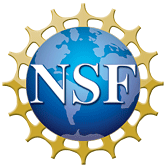Marc B. Cox
|
Professor, Pharmacy - Biological Sciences - Border Biomedical Research Center (BBRC)
Associate Vice President, Research & Innovation
|
Dr. Cox is a molecular endocrinologist with expertise in steroid hormone receptor signaling pathways. His laboratory studies chaperone proteins that bind to and regulate the steroid hormone receptors. His research interest is in understanding the manner in which chaperone and cochaperone proteins influence receptor folding, hormone binding, nuclear translocation, dimerization, and DNA binding. One group of cochaperones termed immunophilins are of particular interest as they are the only receptor-associated cochaperones that display specificity towards small subsets of Hsp90 substrate proteins. Dr. Cox's lab actively works to understand the molecular mechanism by which the FKBP proteins influence receptor function. In addition, his lab is developing and employing strategies to identify selective FKBP inhibitors that could be used to treat hormone-related diseases such as prostate cancer. His laboratory identifies, characterizes, and therapeutically targets steroid hormone receptor regulatory proteins for the treatment of prostate cancer. In addition, his laboratory provides expertise in various model systems, including yeast genetics, that prove useful in large-scale toxicity screens, as well as for high throughput screens for novel drug candidates; other offerings of expertise are in molecular chaperone-mediated stress response and a wealth of reagents relevant for research in any system and/or disease involving chaperones and the stress response including a wide variety of cancers, neurodegenerative diseases and toxicant-induced cellular stress.



